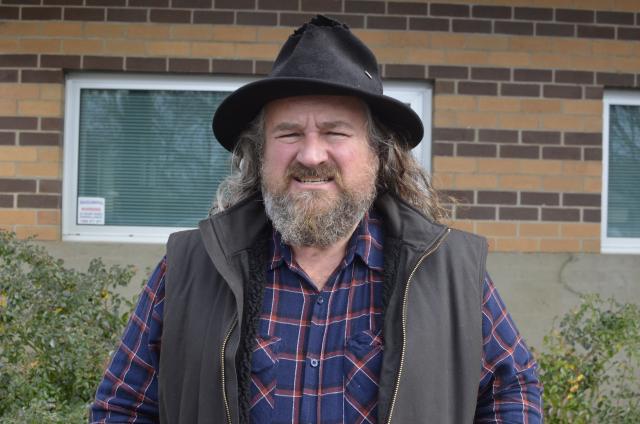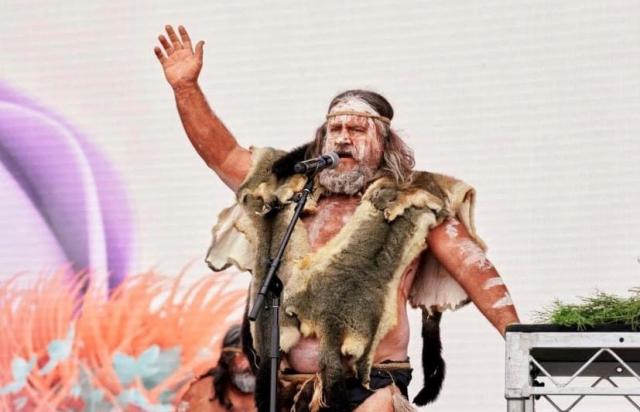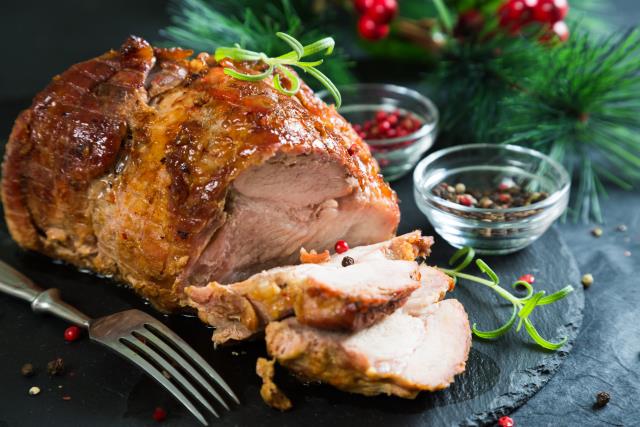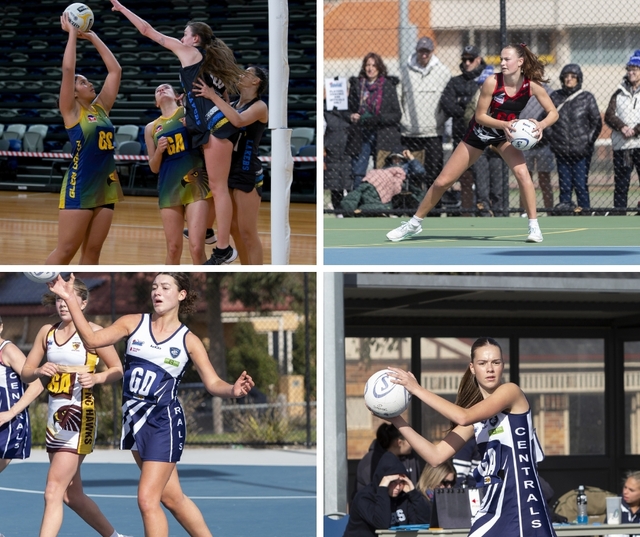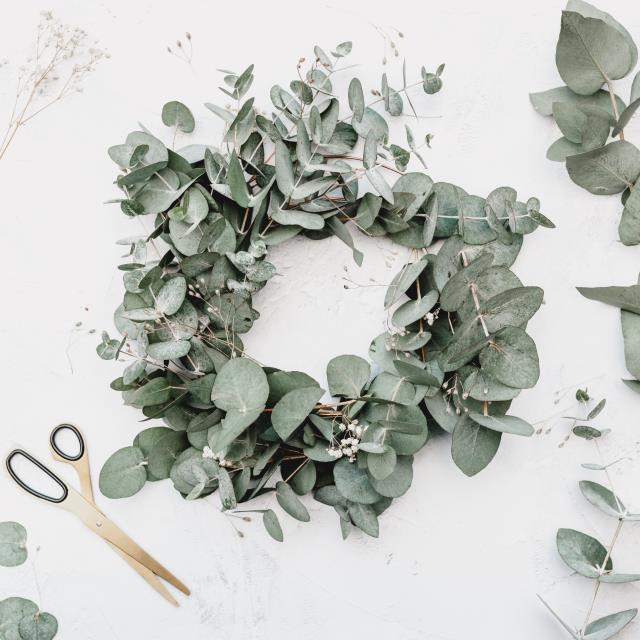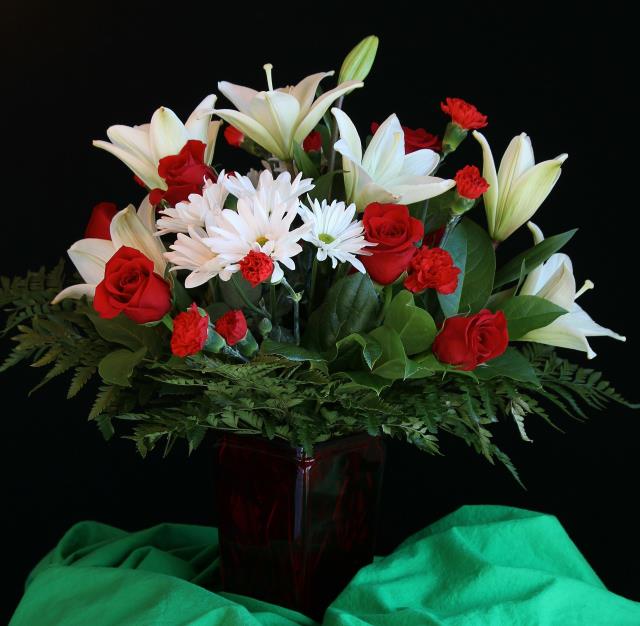Barry Gilson is a Wadawurrung man and an award winning poet, storyteller, narrator, and singer. After leading a Reconciliation Week event in Ballan on Wednesday, May 31, he spoke to Liam McNally about his life, connection to Country, and reconciliation.
Barry Gilson’s life began in Gordon, in the shadow of Kerrit Bareett, where Bundjil the Eagle created the first two men in the Wadawurrung creation story.
As a boy in the 1970s he would walk in the hills and do things that felt “innate”, that he didn’t yet understand had a deeper significance; from catching Timboo (inland mussels) without realising it was a traditional bushfood, finding an ancient grinding stone, or making his own spears.
Gilson recalls as a toddler drawing swirls in the sand and having a red-belly black snake coming to visit him some days.
“I remember it as clear as a bell. It’d come around, it’d go over my legs and I just thought ‘oh well’, I didn’t have that idea it was going to harm me … he was just one of my little friends. I just sort of thought that that’s just a normal thing.”
Now, looking back and having deepened his understanding of Wadawurrung Country he sees all of these moments as “destiny”.
“You have a look at what you’ve done and start to see what it all meant and then you can understand things a bit better when you’re looking back,” he said.
“Maybe they were telling me things then, the special importance of instilling some sort of Dreaming into my spirit then.”
Gilson said has been sharing stories of his culture his entire life. At the Ballan Reconciliation event he spoke of Korweinguboora, meaning “fires from the mountain” – how volcanic activity caused caused an underground aquifer to break and create two rivers, the Moorabool, which means river of ghosts, and the Werribee, which comes from the word for spine.
Storytelling has taken Gilson to festival stages in front of thousands, including Meredith, Beyond the Valley, and Spilt Milk, and his poetry would win him the 2020 Melbourne Spoken Word Poetry event.
“I try to focus on the positives, because that’s all I want to take with me, but there were some times where [storytelling] was a bit hard to do, because I didn’t feel welcome on my own land,” he said.
“We were the most heavily colonised tribe in Australia, and our whole story has been horrendous as far as trying to be silenced from telling our culture for 180 years, and the decimation of our people.
“I had to be strong. I had to represent for my ancestors and families. I had to struggle through that … Someone had to fly the flag. It was just something that needed to be done.”
Gilson said there is a growing “want for knowledge” in today’s culture, and that the acceptance he felt performing the first Welcome to Country at Golden Plains festival was “unbelievable”.
“I sung them a call and response, and the power from their voice singing back to me put the hair up on my back and arms,” he said.
For Gilson, sharing stories is one of the starting points of reconciliation.
“Reconciliation to me it’s all about the histories, and sharing of our culture and our identity, and how we can walk together into the future… It’s all a part of acknowledging the trials and tribulations and the strengths that my family went through to even survive in this landscape and put ourselves back into the context of history,” he said.
Gilson’s stories tie into a “hidden history” of the land, and respecting that land is another important aspect of Reconciliation.
“You’ve got to make a decent sustainable change to bring about saving ecosystems and biodiversity that was here for thousands of years,” he said
“Years ago this place would have been paradise. We don’t see that beauty anymore because it’s fading and the window of opportunity to save everything is getting smaller and smaller every year… we just start the urban sprawl and we don’t think about anything like that… there’s no saving and resurrecting monuments in the land that are held sacred, it’s all just a place where we can build.”
“The land should be respected every day you wake up. Not just one week here and there, because every day I’m living on my family’s land that have been here for thousands of years.”
Moving forward Gilson has high hopes for the change the next generation bring.
“The children now are so respectful, in 20 years when they’re adults we’ll be on some beautiful path I reckon,” he said.
The Potkorok from Yaramlok by BJ Gilson
Inside a dark black billabong
A man with jagged teeth he waits
For unsuspecting fisherman
Or swimmers who are brave
He dances around under the ground
In his subterranean cave
He dances around under the ground
In his subterranean cave
And waits and sleeps in billabong deep
For fools… To meet their fate
“I am the Potkorok from Yaramlok”
“I own these waters deep”
“Those who dare to come beware”
“You will awaken me from my sleep”
“My scales and skin and jagged teeth”
“Await you when i pull your fishing line”
“You will go missing when you are fishing”
“In a watery grave for all time”
He made a little canoe
It’s name was ‘Bundjil Dawang Un”
He called it “sir bent pole”
From a red gum tree it begun,
To sail down the Yaramlok
Meaning “gum tree in the water”
They paint the ochre stumps
From droughts and bumps
To please the rivers daughter
He made a fishing hook from a stone
And upon it was a hole
To fashion around it some rope
From the stringy bark bent pole
And fish for some kawiyn
The black fish it was known
And go back into his billabong
And sit upon his throne
He sings his songs all day and night
Waiting for his next catch
Any sound of movement in his lair
He peeks his nostrils through the hatch
And bubble and splash
And scare them off
When he tries to rest
For when his fat belly is full
You will find him at his best
“I am the Potkorok from Yaramlok”
“I am the mosnter from the billabong”
“If you listen quietly down near the Yaramlok”
“You just might hear my song”
“Yaramlok But But Buluk”
“Kim Barne Potkorok”
“Billabong Dirda Yalock”
“Potkorok Yaramlok”

